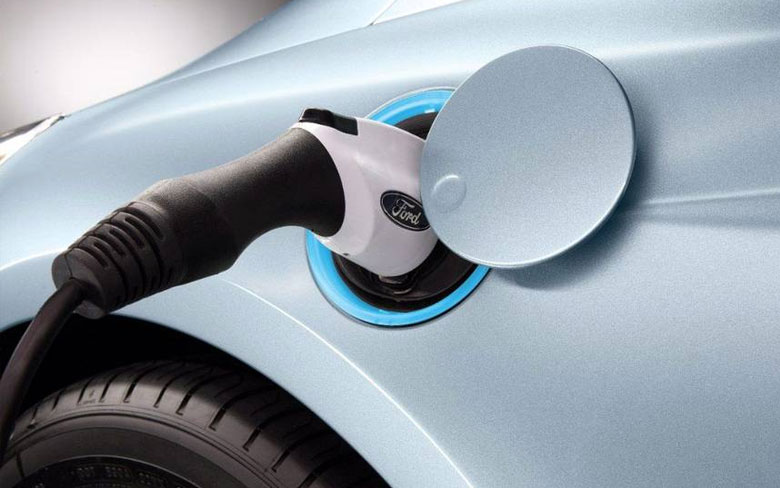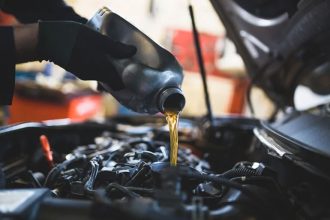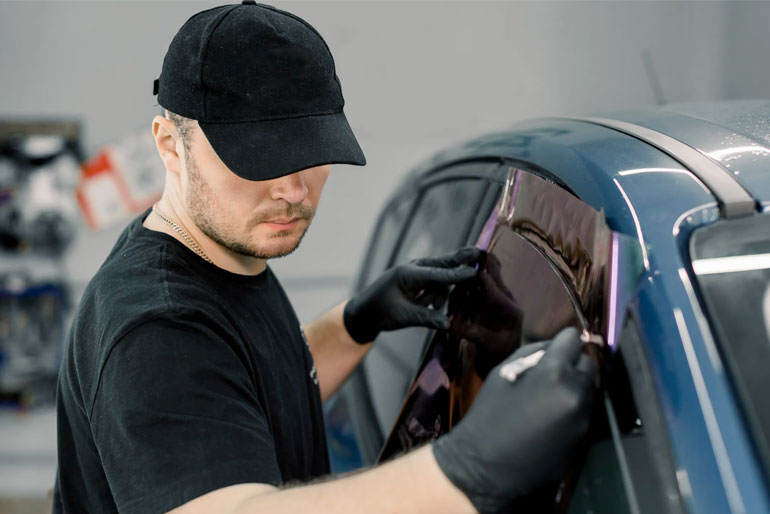Tinting car windows is a popular upgrade for drivers looking to improve privacy, reduce heat, and protect their interiors from harmful UV rays. If you’re considering this enhancement, one of the first questions on your mind is likely about the cost. While pricing can vary based on several factors, we’ll break down what to expect when tinting your car windows and the key elements that influence the final price.
Factors That Affect the Cost of Window Tinting
Several things come into play when determining the price of tinting your car’s windows. Here’s a closer look at the main factors:
1. Type of Vehicle
The size and type of your car play a significant role in the cost of window tinting. Tinting a compact sedan with fewer windows is generally less expensive than tinting a large SUV or truck, which has more surface area to cover. Larger vehicles may require more materials and labor, which increases the overall cost.
2. Number of Windows
The more windows you need to tint, the higher the price. Some people choose to tint all of their windows, while others might only opt for the rear windows or even just the front two. Pricing will adjust depending on how many windows you include.
3. Type of Tint Film
There are different types of window tint films, each with varying degrees of quality and cost. The type you choose will significantly impact your total expense.
- Dyed Window Tint: This is the most affordable option, offering basic UV protection and privacy. However, it may fade over time and has limited heat-reduction capabilities.
- Metalized Tint: More durable than dyed film, this tint contains tiny metallic particles that reflect heat and UV rays. It’s pricier but offers better performance.
- Ceramic Tint: This is the highest-quality tint film and comes with a higher price tag. It blocks UV rays and heat more effectively than dyed or metalized tints, without interfering with signals like GPS or mobile reception.
- Carbon Tint: This is another high-quality option that prevents heat without the metallic sheen of other films. It’s durable, and though it costs more than dyed films, it isn’t as expensive as ceramic tints.
4. Tint Percentage
Different tint percentages offer varying levels of darkness, which can affect pricing. A darker tint often requires more precision during installation and might increase the cost slightly. However, be mindful that state laws regulate how dark you can tint your windows. Always check local regulations before deciding.
5. Professional vs. DIY Installation
Professional window tinting usually comes with a higher price, but you’re paying for expertise, quality materials, and a warranty. DIY kits are much cheaper, typically ranging from $50 to $100, but they come with the risk of an uneven or poor-quality finish if you’re not experienced. Professional tinting can range from $150 to $500 or more, depending on the factors discussed above.
Typical Price Ranges for Window Tinting
Here’s a general breakdown of what you can expect to pay for tinting your car windows, based on vehicle size and type of film:
- Compact Cars/Sedans:
- Dyed film: $100 – $250
- Metalized film: $200 – $350
- Ceramic film: $300 – $500
- Carbon film: $200 – $400
- SUVs/Trucks:
- Dyed film: $150 – $300
- Metalized film: $250 – $450
- Ceramic film: $400 – $700
- Carbon film: $300 – $600
- Luxury Vehicles or Special Tinting Requirements: If you have a luxury vehicle or a specialty tint (like one that’s reflective or heat-reducing), prices can rise further. Specialty tints can range from $500 to $1,000 or more depending on the complexity of the installation.
Additional Costs to Consider
Besides the base cost of the tinting film and installation, there may be extra charges involved. Here are some possible additional costs:
- Removal of Old Tint: If your car already has window tint that needs to be removed, expect to pay an additional fee, typically around $50 to $150 depending on the vehicle and the condition of the old tint.
- Higher-Grade Tints or Custom Work: Some companies may offer tints with extra features such as scratch resistance or enhanced UV protection, which can increase the price. Custom work, such as graphics or special tint patterns, will also cost more.
- Warranties: Some professional installers include warranties that cover fading, peeling, or bubbling. While some warranties come at no extra charge, others may add to the total cost. Always ask what’s included in the warranty before making a decision.
Benefits of Tinting Your Car Windows
Now that you have an idea of how much it costs to tint your car windows, it’s worth understanding the benefits you get from making this investment.
1. Privacy and Security
Tinting your windows provides extra privacy by making it harder for others to see inside your vehicle. This not only gives you peace of mind but can also deter theft, as valuables in your car are less visible.
2. Heat Reduction
Window tint can block a significant amount of heat from the sun, keeping your car cooler in hot weather. High-quality tints can block up to 50% or more of the solar heat, making your driving experience more comfortable, especially during the summer.
3. UV Protection
Tinting provides protection against harmful UV rays, which can damage your car’s interior and cause your skin to age prematurely. By blocking up to 99% of UV rays, window tint helps protect both you and your car’s upholstery from sun damage.
4. Enhanced Appearance
Tinted windows give your car a sleek, modern look that many drivers find appealing. Whether you’re looking for a subtle enhancement or a more dramatic change, window tinting adds a stylish touch to your vehicle.
5. Reduced Glare
Tinted windows can reduce the glare from the sun, headlights, and other bright lights, making it easier and safer to drive, especially during dawn, dusk, or nighttime hours.
Conclusion
Tinting your car windows is an investment that offers both aesthetic and practical benefits. The cost to tint car windows depends on factors such as the type of vehicle, the number of windows, the type of tint film, and whether you opt for professional installation or a DIY kit. On average, expect to pay anywhere from $100 to $700 or more, depending on the choices you make.
While it might be tempting to go for the cheapest option, higher-quality tint films and professional installation can make a big difference in the long run. You’ll get better UV protection, heat reduction, and durability, along with the peace of mind that comes with a job done right. Whether you’re looking for privacy, comfort, or a sleek new look, window tinting can be a worthwhile upgrade for your car.







